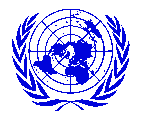United Nations Directories
for Electronic Data Interchange for
Administration, Commerce and Transport

UN/EDIFACT
| United Nations Directories for Electronic Data Interchange for Administration, Commerce and Transport  UN/EDIFACT |
Message Type : SKDREQ Version : D Release : 00B Contr. Agency: UN Revision : 1 Date : 2000-06-28 SOURCE: D10 - Travel, tourism and leisure (SWG) CONTENTS Schedule request - interactive message 0. INTRODUCTION 1. SCOPE 1.1 Functional definition 1.2 Field of application 1.3 Principles 2. REFERENCES 3. TERMS AND DEFINITIONS 3.1 Standard terms and definitions 3.2 Message terms and definitions 4. MESSAGE DEFINITION 4.1 Segment clarification 4.2 Segment index (alphabetical sequence by tag) 4.3 Message structure 4.3.1 Segment table ---------------------------------------------------------------------- For general information on UN standard message types see UN Trade Data Interchange Directory, UNTDID, Part 4, Section 2.3, UN/ECE UNSM General Introduction ---------------------------------------------------------------------- 0. INTRODUCTION This specification provides the definition of the Schedule request - interactive message (SKDREQ) to be used in Electronic Data Interchange (EDI) between trading partners involved in administration, commerce and transport. 1. SCOPE 1.1 Functional definition The message is used to request travel service schedule update information aimed to update the schedule data base of the requester. It allows to the specification of selection criteria for the requested information. 1.2 Field of application The Schedule request - interactive message may be used for both national and international applications. It is based on universal practice related to administration, commerce and transport, and is not dependent on the type of business or industry. 1.3 Principles - A schedule request is sent to a travel service provider by an other service provider or by an agency in order to obtain travel schedule information for the update of the senders' schedule database. The sender can add selection criteria to specify the scope of requested data. - The interactive message SKDUPD (Schedule update - interactive message) and / or TSDUPD (Timetable static data update - interactive message) are utilised to provide a response to the schedule request. - A schedule request may also be used to formulate a request for re-transmission of the data in case of error. 2. REFERENCES See UNTDID, Part 4, Chapter 2.3 UN/ECE UNSM - General Introduction, Section 1. 3. TERMS AND DEFINITIONS 3.1 Standard terms and definitions See UNTDID, Part 4, Chapter 2.3 UN/ECE UNSM - General Introduction, Section 2. 3.2 Message terms and definitions See UNTDID, Part 4, Chapter 2.6 UN/ECE UNSM - General Introduction, Section 2. 4. MESSAGE DEFINITION 4.1 Segment clarification This section should be read in conjunction with the segment table which indicates mandatory, conditional and repeating requirements. 0010 UIH, Interactive message header A service segment starting and uniquely identifying a message. The message type code for the Schedule request - interactive message is SKDREQ. Note: Schedule request - interactive messages conforming to this document must contain the following data in segment UIH, composite S306: Data element 0065 SKDREQ 0052 D 0054 00B 0051 UN 0020 MSD, Message action details A segment to specify the type and business function of the message. 0030 ORG, Originator of request details A segment to specify details related to the originator of the schedule update 0040 HDR, Header information A segment to specify information applicable to the entire message. 0050 POP, Period of operation A segment to specify a period of operation of the service. 0060 ODI, Origin and destination details A segment to specify the origin and destination locations of a service leg or segment. 0070 Segment group 1: RFR-LKP A group of segments to specify selection criteria. 0080 RFR, Reference A segment to specify a reference to one of the elements of the selection criteria. 0090 LKP, Level indication A segment to specify the hierarchical order of the occurrence of the segment group. 0100 Segment group 2: ERI-RFR-IFT A group of segments to specify an error condition 0110 ERI, Application error information A segment to specify the type of application error 0120 RFR, Reference A segment to reference the erroneous element. 0130 IFT, Interactive free text A segment to provide text related to the error. 0140 UIT, Interactive message trailer A service segment ending a message, giving the total number of segments in the message (including the UIH & UIT) and the control reference number of the message. 4.2 Segment index (alphabetical sequence by tag) ERI Application error information HDR Header information IFT Interactive free text LKP Level indication MSD Message action details ODI Origin and destination details ORG Originator of request details POP Period of operation RFR Reference UIH Interactive message header UIT Interactive message trailer
4.3 Message structure 4.3.1 Segment table Pos Tag Name S R 0010 UIH Interactive message header M 1 0020 MSD Message action details M 1 0030 ORG Originator of request details M 1 0040 HDR Header information C 1 0050 POP Period of operation C 1 0060 ODI Origin and destination details C 99 0070 ----- Segment group 1 ------------------ C 99----------+ 0080 RFR Reference M 1 | 0090 LKP Level indication C 1-----------+ 0100 ----- Segment group 2 ------------------ C 99----------+ 0110 ERI Application error information M 1 | 0120 RFR Reference C 1 | 0130 IFT Interactive free text C 1-----------+ 0140 UIT Interactive message trailer M 1